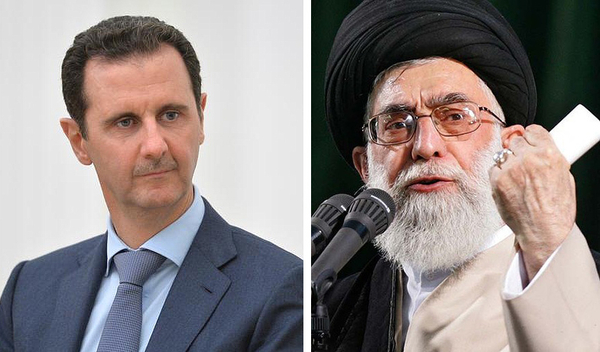Iranian regime strengthening its ability to control Syria’s destiny
الدكتور ماجد ربيزاده: النظام الإيراني يقوي هيمنته على لسوريا ليتمكن من السيطرة على مصيرها
Dr. Majid Rafizadeh/Arab News/October 04/18
The international community appears to be getting less concerned about Iran’s continuing presence in Syria from both the military and political perspectives. Although the Syrian government has recaptured significant territories, Damascus still seems to be in favor of the Iranian regime’s ongoing and increasing influence within the country’s borders.
In his speech at the United Nation General Assembly, Syrian Foreign Minister Walid Muallem reiterated the classic narratives that the Syrian government has been spreading. Such narratives include the notions that the Syrian forces are solely fighting terrorism, that the government does not use chemical weapons, and that Damascus is seeking diplomatic initiatives to bring about full stability and peace in all Syrian territories.
But there was one critical issue that Muallem failed to mention is his speech: The current and future role of the Iranian regime in Syria. Without a doubt, the theocratic establishment of Iran is one of the most significant state actors in Syria. Tehran has masterfully orchestrated its agenda to continue increasing its influence there.
From the perspective of the Iranian leaders, chaos and instability in the region provide geopolitical and geostrategic opportunities. In Syria, Tehran began by providing advisory assistance and moral support to the regime. Then, when the Syrian forces showed weakness and lost several major battles and territories to the opposition and rebel groups, Iran ratcheted up its involvement and influence. Under the instruction of Iran’s most powerful man, Supreme Leader Ali Khamenei, Tehran began providing military, intelligence and economic assistance to Bashar Assad.
It is worth noting that Iranian leaders across the political spectrum — including the moderates, hard-liners and Principlists — advocated for the same policies on Syria that were directed by Khamenei, the senior cadre of the Islamic Revolutionary Guard Corps (IRGC) and the Quds Force, an elite branch of the IRGC that conducts operations in foreign nations to advance the regime’s revolutionary and ideological principles.
Has Iran masterfully orchestrated its agenda to continue increasing its influence in Syria?
In the next phase, the IRGC used political opportunism and dispatched low-level soldiers as well as senior military generals to Syria. In addition, Iran used its proxies, including Hezbollah and Shiite militias from across the region, and recruited fighters from other countries such as Afghanistan to fight in Syria alongside Assad’s forces.
More importantly, the Iranian regime exploited the conflict financially by making Damascus more dependent on Tehran economically. It opened a credit line for the Assad regime and continued to extend it. The credit line has now reached over $3 billion. Iran also began spending roughly $16 billion a year supporting Assad. Through these Machiavellian strategies, the ruling mullahs deeply infiltrated Syria’s political, military and security structures.
It is important to point out that, from the prism of the Iranian leaders, Tehran has finally emerged triumphant in the seven-year-old civil war — a war that has included the employment of violence and brute force, which has caused the deaths of nearly half a million people, including thousands of children.
Iran’s media outlets, as well as several of the regime’s apparatuses, began celebrating their success in accomplishing their mission in Syria after many territories were recaptured. Iranian leaders labeled Syria as “the 35th province (of the Islamic Republic of Iran) and a strategic province for us.”
To improve the situation in Syria, it is in the interests of not only Syrians, but also Russia, to free Damascus from Iran’s forces. But Iranian Defense Minister Amir Hatami recently traveled to Syria and sealed an agreement with Damascus for intensified military cooperation, which will likely strengthen Iran’s military role. Hatami pointed out: “With this accord, we have paved the way for a reconstruction of the Syrian military industries.” Iran will be also building a large power plant in the western coastal province of Latakia.
The latest developments are pointing toward the next crucial phase that the Iranian regime is plotting. Tehran is beginning to solidify its presence and influence in Syria in order to continue directing the nation’s social, political and economic affairs for many years or even decades to come.
*Dr. Majid Rafizadeh is a Harvard-educated Iranian-American political scientist. He is a leading expert on Iran and US foreign policy, a businessman and president of the International American Council. Twitter: @Dr_Rafizadeh






















